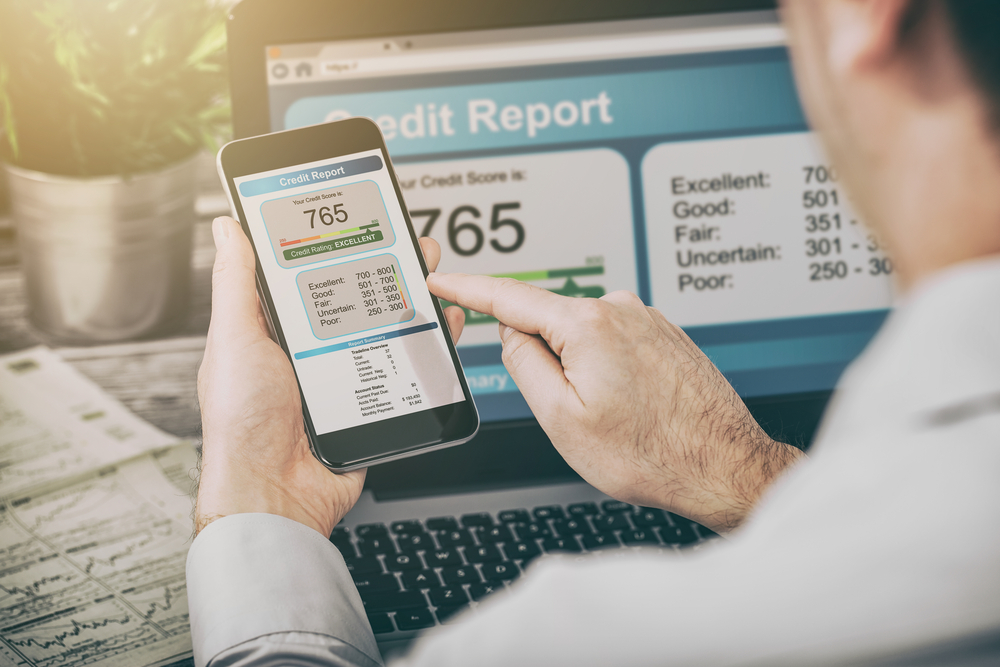Do you know what your credit score is?
More importantly, do you know how you can raise your credit score?
Your credit score is a quick indicator to lenders (banks, credit card companies, etc.) that shows how you have managed your money in the past – if you’ve paid your bills on time, if you’ve maxed out your allowed budget, and so on. Previously, we shared what a credit score is and all the factors that determine how high or low it can be for you.
Now that you know what a credit score is and why it is important, the next step is understanding how you can increase your credit score to improve the overall health of your finances (and your reputation to potential lenders).
In today’s challenging times, many people are having trouble managing money. Maybe your job was furloughed, maybe you took a pay cut, or maybe you lost your job entirely. Stress and uncertainty have become the norm, but that doesn’t mean that you cannot build towards a positive future.
In this article, we want to share 4 tips on how to raise your credit score and get to a better place mentally and financially.
-
Ask for A Credit Increase

The quickest and simplest way to improve your credit score is by asking your credit card company for an increase in your credit limit. This is because one factor that goes into calculating credit scores is credit utilization (how much you owe vs. how much you have left in your limit).
For Example:
- If a credit card has a limit of $5,000, and you owe $2,500, then your credit utilization is 50% (2,500 is 50% of 5,000).
- If you raise your credit limit to, say, $9,000, then your credit utilization changes from 50% to 28%.
This means you are using less of the credit you have available to you, which makes your financial health look better to potential lenders.
The important thing to remember is that, just because you increase your limit, that doesn’t mean you can spend more. Keeping your credit utilization low will raise your credit score because it shows you are not maxing out all the credit available to you, which can create a negative perception of you to others.
-
Keep Old Credit Cards Open

Whenever you think about trying to raise your credit score, one of the first thoughts is to close any credit cards you don’t use anymore and don’t owe anything on. This is a mistake because those open credit cards are helping you. Even though you don’t owe anything on them, they count towards your total credit utilization (like what we discussed in the previous section).
If you have a credit card that has a $0 balance and a $3,000 limit, then that $3,000 counts towards your total credit utilization. These cards can also be an “easy win” because you can use the card sparingly (like a $10 charge every month or so) and pay it off immediately so the account stays active/open and so you develop a history of keeping the card paid off.
-
Pay on Time, Every Time

One of the biggest factors in your credit score is how often (or not) you pay your bills on time. This is a quick and easy way to look at how you manage your finances – by seeing if you pay things by the due date. When you are late on your payments, it lowers your credit score because the company sees you as being unreliable with your money.
However, making payments on time, every time, shows that you are consciously working towards paying off the debt. This consistent schedule creates a sense of responsibility on your part, which in turn raises your credit score (the more responsible you are, the higher your score will be).
-
Stop Adding Fuel to the Fire

Credit cards are can be dangerous because it creates this idea that we aren’t spending money now – we are only spending money later. This mindset can cause you to focus only on the present (I get to buy a thing) and not on the future (I’m going to have to pay for this eventually).
You must learn to stop adding potential debt to your credit cards and only focus on paying down the debt you have. Resolve to not add any new debt to what you currently have. Even if you follow these previous 3 tips, it won’t matter if you keep spending money on the credit cards that you already owe money on.
Making financial and personal trade-offs are not easy, but in the times we are living in, they are necessary to create a better future for ourselves. Be smart about your spending now – you’ll thank yourself in the future.





Leave A Comment